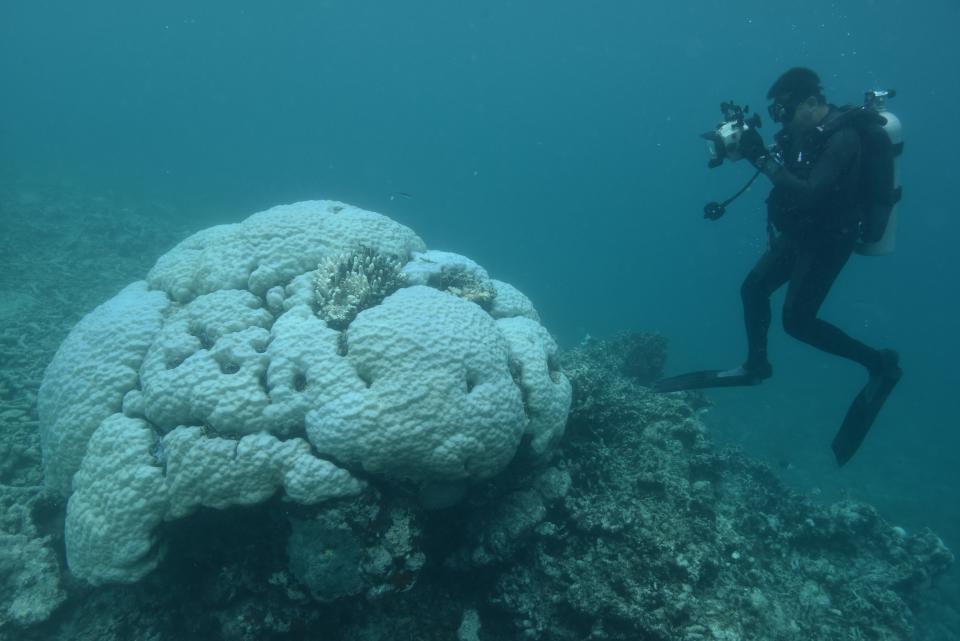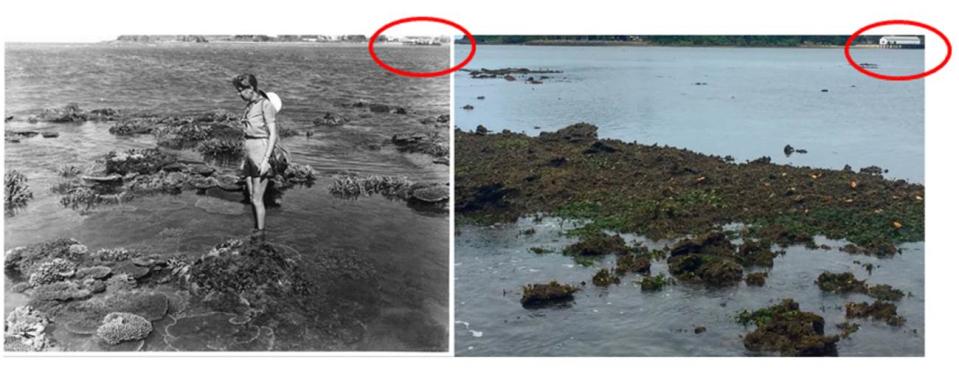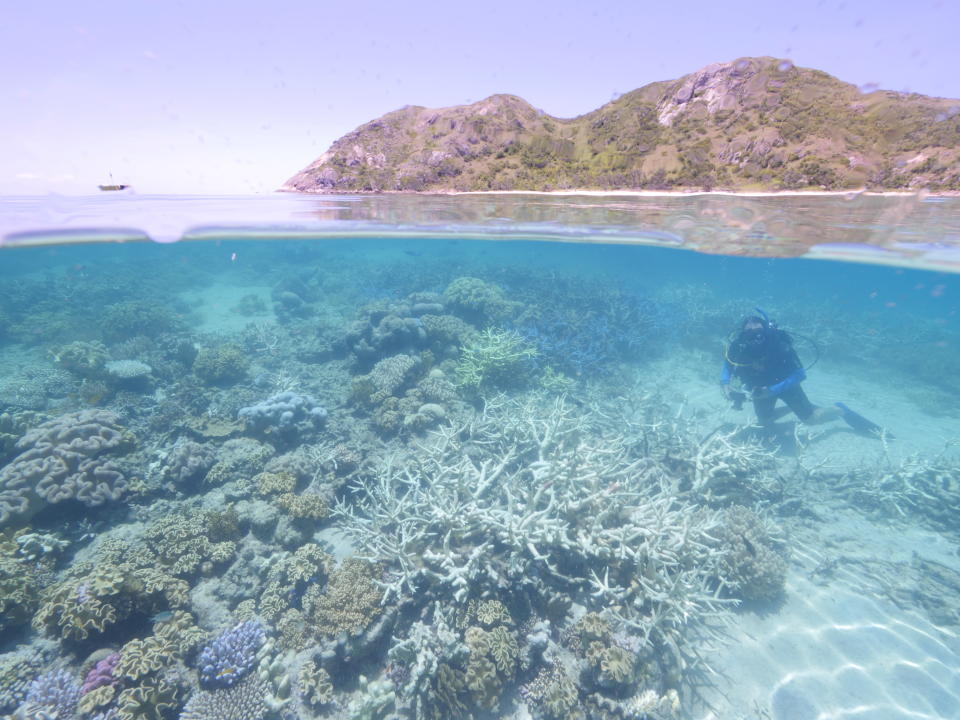See it before it's gone: Reef's 'frightening' prognosis prompts warning
Those wishing to see the full splendour of the Great Barrier Reef may want to do so quickly, with a key government report downgrading the UNESCO site’s prognosis to “very poor”.
Whitsundays diving operator Tony Fontes told Yahoo News Australia that every local tourism operator would agree that the Great Barrier Reef Marine Park Authority’s Outlook Report is “frightening”.
“It’s not a surprise though - tourism operators have watched the reef health decline for quite a long time,” Mr Fontes said.
“Times are changing and there isn’t as much we can visit now.”
The 40-year-veteran diver added that while there are still many great parts of the reef to explore, there are fewer “amazing” parts to dive.

“Tourism will never die, because there will always be people who don’t know any better,” he said.
“To a Chinese person, visiting the reef for the first time, everything they see will be amazing.
“For example, if I’ve never seen a lion before, to see the last one on a wild range would be amazing, but for someone who lives there and had known thousands it will be sad.”
‘The question on everyone’s lips’
Laurie Pritchard from tourism operator Small World Journeys is urging the government to step in and help secure tourism jobs in the region.
“The question on everyone’s lips is if the reef is dead.”
“People might see it dying and think ‘quick, quick, let’s go see it,’ but I feel the opposite is true.
“People see the reports and think I’m just going to see dead coral.”
Ms Pritchard thinks people underestimate how many jobs in Far North Queensland depend on the reef.
“Often when we talk about loss of jobs there’s a focus on coal, but there’s also a huge industry that is dependant on tourism, and those jobs are dependant on the health of the reef,” she said.

Federal Environment Minister Sussan Ley noted that the Reef had been impacted by crown of thorns starfish and cyclones, but singled out climate change as the key issue.
“The report highlights climate change as the most significant threat to the reef’s future, outlining the pathways we can take to strengthen its resilience going forward,” she said.
“Based on the condition of the reef and events over the last five years, the report has downgraded the long-term outlook for the reef’s ecosystem from ‘poor’ to ‘very poor’.
“This is an outlook we can change and are committed to changing.”

Call for government action
World Wide Fund for Nature spokesperson Richard Leck put the onus back on the government, calling it to act swiftly on climate change by moving towards renewable energy.
“Australia can continue to fail on climate policy and remain a major coal exporter or Australia can turn around the Reef’s decline,” he said.
“But it can’t do both.
“That’s clear from the government’s own scientific reports.”
He warned the “very poor” grading sends a “pretty stark message” in terms of the future of the reef.
“It’s important to note that the report is from the government and taking in the best science available,” he said.
“It’s probably the best assessment of the health of the Reef going, so that is very frightening.”

Unite to save world icon
Sea Shepherd Australia’s Managing Director Jeff Hansen highlighted the reef’s national significance.
"The Great Barrier Reef is an Australian and world icon that is critical to the health of our oceans that provide us with most of our oxygen,” he told Yahoo News Australia.
"We must unite and stand together and fight for the Great Barrier Reef. Standing up for the reef safeguards a future for us all.”
“We must make a stand, for if there is one thing worth fighting for on this planet we call home, it's life.”
Do you have a story tip? Email: newsroomau@yahoonews.com.
You can also follow us on Facebook, download the Yahoo News app from iTunes or Google Play and stay up to date with the latest news with Yahoo’s daily newsletter. Sign up here.



